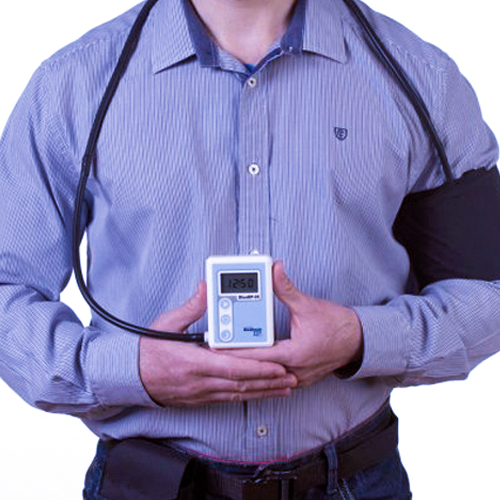
ABPM Test is a diagnostic test used to measure a person's blood pressure over a 24-hour period. It is a non-invasive test that involves wearing a small, portable device that is attached to the upper arm and records blood pressure readings at regular intervals throughout the day and night.
During the test, the ABPM device will inflate a cuff on the upper arm to measure the blood pressure at various intervals, usually every 15 to 30 minutes during the daytime and every 30 to 60 minutes during the nighttime. The test is used to evaluate blood pressure patterns, such as fluctuations in blood pressure during the day and night, and can help diagnose conditions such as hypertension (high blood pressure) and hypotension (low blood pressure).
Our Process

What Conditions ABPM can Diangose
- Hypertension: ABPM can help confirm a diagnosis of hypertension and determine whether the patient has white coat hypertension (when blood pressure is elevated in the clinic but not outside the clinic) or masked hypertension (when blood pressure is normal in the clinic but elevated outside the clinic).
- Hypotension: ABPM can also be used to diagnose hypotension, which is low blood pressure.
- Nocturnal Hypertension: ABPM can help diagnose nocturnal hypertension, which is high blood pressure during the night when a person is sleeping.
- Cardiovascular Disease: ABPM can provide valuable information about a person's risk for developing cardiovascular disease.
- Autonomic Dysfunction: ABPM can be used to diagnose autonomic dysfunction, which is a condition that affects the nervous system and can lead to problems with blood pressure regulation.
- Chronic Kidney Disease: ABPM can also be used to monitor blood pressure in people with chronic kidney disease, who are at increased risk of developing hypertension.
Get Hassle free abpm test in Ghaziabad, Noida & Greater Noida
Our dedicated facilities provide precise monitoring of your blood pressure over a 24-hour period, guided by experienced professionals. Using state-of-the-art technology, we ensure accurate readings to assist in diagnosing hypertension and guiding treatment decisions. With flexible scheduling options and multiple convenient locations, prioritizing your cardiovascular health has never been easier. Simply book your appointment, wear the comfortable monitoring device, and receive comprehensive reports promptly. Take proactive steps towards better blood pressure management with our ABPM test services, available across Ghaziabad, Noida, and Greater Noida.
Note: To know more please check Frequently Asked Questions (FAQ)